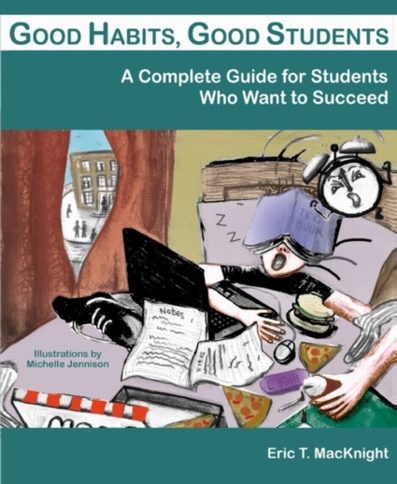We all find some activities easy and fun, while other activities are difficult and unpleasant.
Some people, for example, love to read, but hate to exercise.
Other people love to exercise but hate reading.
If you never exercise, your muscles are undeveloped; you become physically unfit and, eventually, unhealthy.
If you never read, your intellect is undeveloped.
People who hate to exercise need to find a way of staying fit that is at least tolerable, and then they need to exercise regularly. People who hate to read need to make the time to read at least a little bit every day, to develop their knowledge and understanding.
You can develop the habit of reading daily, or exercising regularly, or doing anything else that you know you should do, even though you are not naturally inclined to do it.
As an example of how to do this, consider . . . brushing your teeth. At first, you had no teeth. Then you got teeth, but you were too little to brush them yourself, so some caring adult (let’s say your mum, but it could have been your dad, or whoever else was looking after you)—some caring adult brushed your teeth for you. After a while, your mum (or whoever) got tired of doing this and said, “You are old enough to brush your own teeth. Here, hold the toothbrush.” And she taught you how to brush your own teeth. A bit later, you became more independent. “Goodnight, Mum!” “Did you brush your teeth?” “Aw, Mum!” “Get in there right now and brush your teeth!” After a few years of this, you did not need any reminders. You acquired, through simple repetition, the habit of brushing your teeth. And now you would never go to sleep without brushing your teeth.
If you can acquire the habit of brushing your teeth, you can acquire the habit of doing anything else that you know is good for you. At first you may need reminders—your phone, or a caring adult, or a friend. Eventually, you will need no reminders. And your life will be better!

